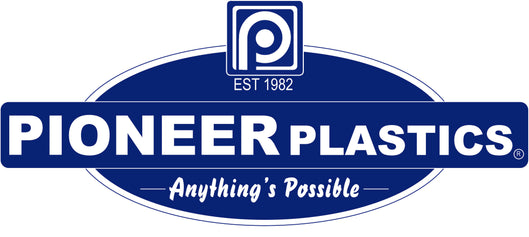
Marine Products Protecting Coastal Infrastructure
Rising sea levels, storm frequency and coastal erosion are some effects of climate change on our coastlines—fortunately marine products are helping us to adapt.
The Coastal Climate Challenge
Storms are becoming more intense and frequent. Beaches and cliffs are eroding at alarming rates. These changes put your homes, businesses, and vital infrastructure at risk.
According to the G20 Climate Risk Atlas, "Sea temperatures in South Africa could increase by 1.3°C by 2050 in a high carbon scenario, triggering a sharp rise in ocean acidification and reducing fish catch potential by as much as 11.2%."
Tourism, freshwater supplies, infrastructure, and biodiversity are all severely impacted by climate change.
South Africa is looking at several solutions to combat the effects of climate change on its coastlines. Nature-based options include mangrove and dune restoration, beach nourishment and living shoreline initiatives. Infrastructure and planning solutions include seawalls and dykes, building setbacks, elevating vulnerable structures, and improving drainage systems.
Traditional Infrastructure Falls Short
While traditional infrastructure may offer some protection in specific situations, it's not a sustainable long-term solution for the complex challenges posed by climate change.
The fact is that conventional coastal defences are struggling to keep up. Metal structures corrode quickly in saltwater environments, and concrete degrades under constant water exposure. These rigid solutions can't adapt to rapidly changing conditions. You need a more flexible, durable approach.
How Rotational Moulded Marine Products Change the Game
Rotational moulding technology offers a revolutionary solution. This process creates seamless, hollow plastic products. They're incredibly strong, lightweight, and resistant to corrosion. You'll find these materials perfect for marine environments.
Pioneer Plastics is at the forefront of this innovation. Our rotationally moulded products are transforming coastal protection—here's how.
Plastic Jetties
Plastic Jetties are modular structures that adapt to changing water levels. They're easy to install and maintain.
These can act as a temporary wave barrier, reducing wave energy reaching the shore and lessening erosion. This can buy time for other erosion control solutions or protect sensitive areas.
Marine Buoys
Plastic buoys are significantly lighter than steel buoys. This makes them easier to transport, deploy, and retrieve. They are incredibly durable and can withstand harsh marine environments for extended periods, often exceeding 20 years.
Bouys themselves don't directly protect coastlines or infrastructure from erosion or wave action. However, numerous strategically deployed buoys can be a temporary, limited wave barrier.
The most obvious application is using buoys to demarcate areas like restricted zones or where there are underwater hazards to guide maritime traffic and reduce risks.
Hyacinth Barriers
Hyacinth Barriers need little explanation regarding their essential roles in controlling invasive aquatic plants while protecting shorelines.
Controlling invasive plants' spread can help prevent the clogging of waterways and channels, which can contribute to erosion.
Plastic hyacinth barriers offer several benefits, such as:
- Cost-effectiveness,
- Durability against all weather conditions,
- Lightweight (reducing labour costs and simplifying maintenance) and
- Versatility because plastic allows flexibility in design.
Floating Solar Panel Mounts
Though not directly linked to coastal infrastructure, plastic Floating Solar Panel Mounts are vital in combatting climate change. Solar energy is clean and renewable, enabling us to reduce our carbon footprint.
Water-based solar panels must float to adapt to undulating water levels caused by volatile storms and subsequent floods. With rotational moulding, the mounts are perfectly hollow yet fiercely impenetrable!
Environmental Benefits Abound
Choosing rotationally moulded (also known as rotomolded) products isn't just smart—it's sustainable. You'll reduce waste by replacing structures less often, as these marine products withstand corrosion and general degradation. The environmental impact is significantly lower than traditional materials.
Your coastal areas deserve the best protection available. Rotomolded marine products offer durability, flexibility, and sustainability. They're your key to adapting to climate change challenges.
Are you a coastal planner or developer? Don't wait for the next storm to expose your vulnerabilities. Invest in your community's future. Build a resilient coastline that can withstand whatever nature throws its way.
It's time to act. Explore Pioneer Plastics' range of innovative marine products.
